
Yemen: How your donations are still helping people affected by the war
As the war in Yemen continues into its fourth year, DEC member charities are working in extremely difficult conditions to provide relief to civilians caught up in the conflict.
25 September 2018
As the war in Yemen continues into its fourth year, DEC member charities are working in extremely difficult conditions to provide relief to civilians caught up in the conflict.
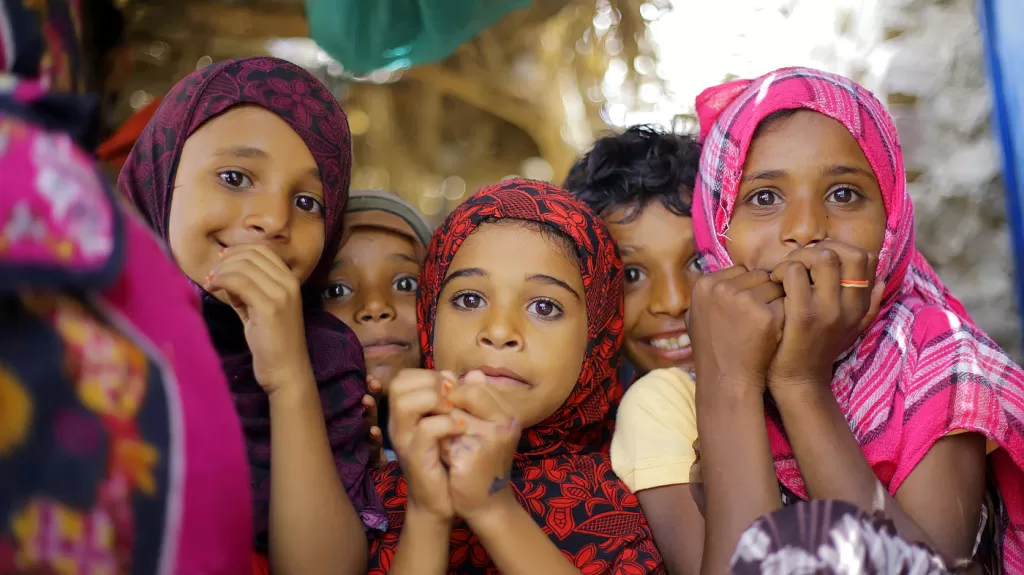
Children whose family was displaced from Taiz to a village in Lahj. They now benefit from an Oxfam water supply project funded by the DEC. Ammar Bamatraf/DEC.
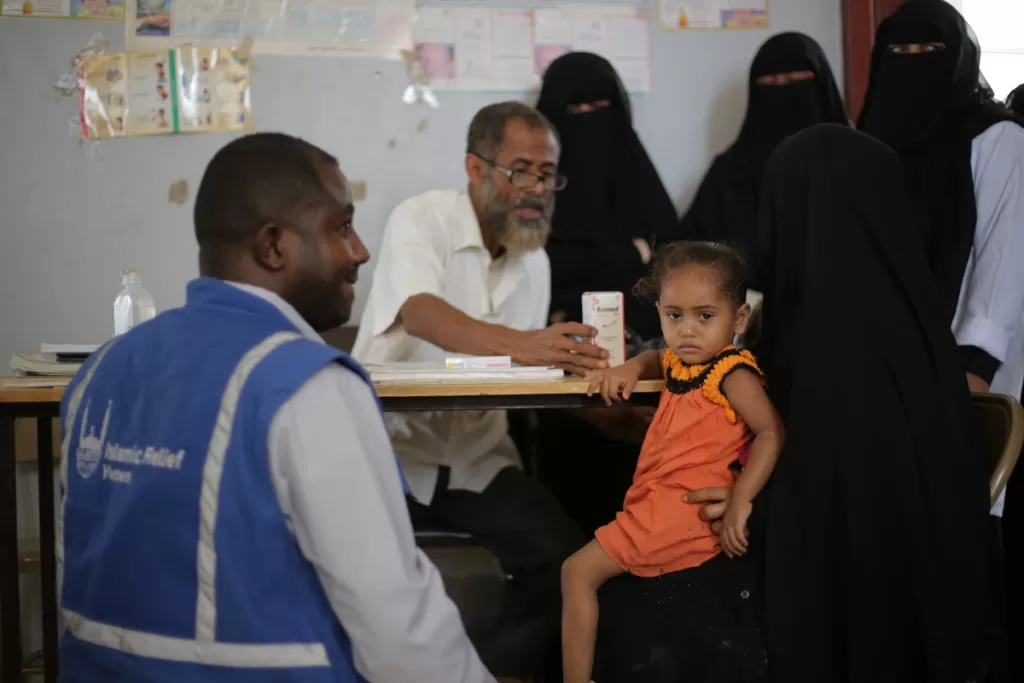
Aaliyah, 5, was diagnosed with a fever at the medical centre operated by Islamic Relief in Lahj, Yemen. Image: Ammar Bamatraf/DEC
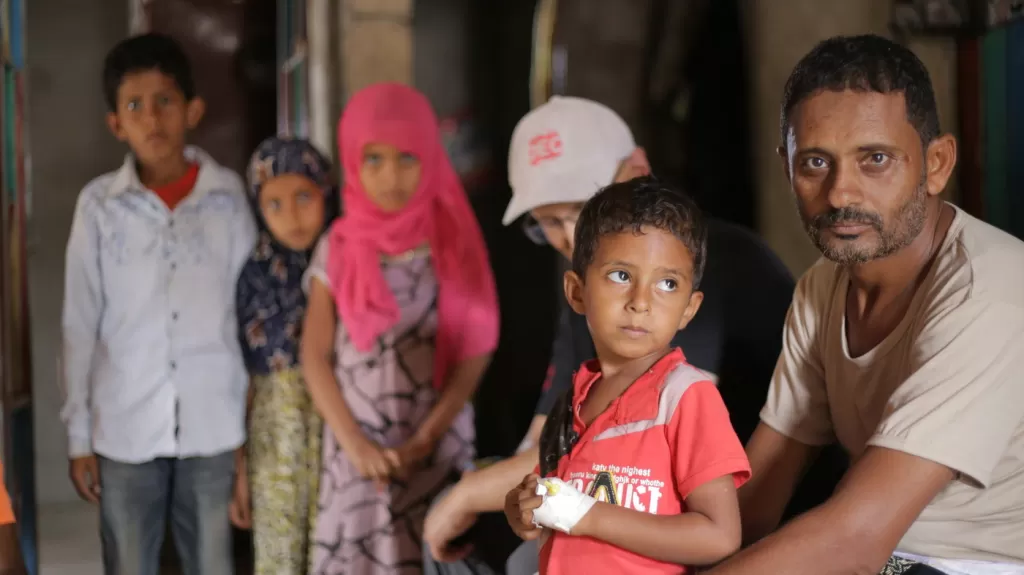
Mushtaq and his family benefit from access to clean water through a DEC-funded project. His children used to have to walk long distances to fetch water, but now can go to school. Ammar Bamatraf/DEC.
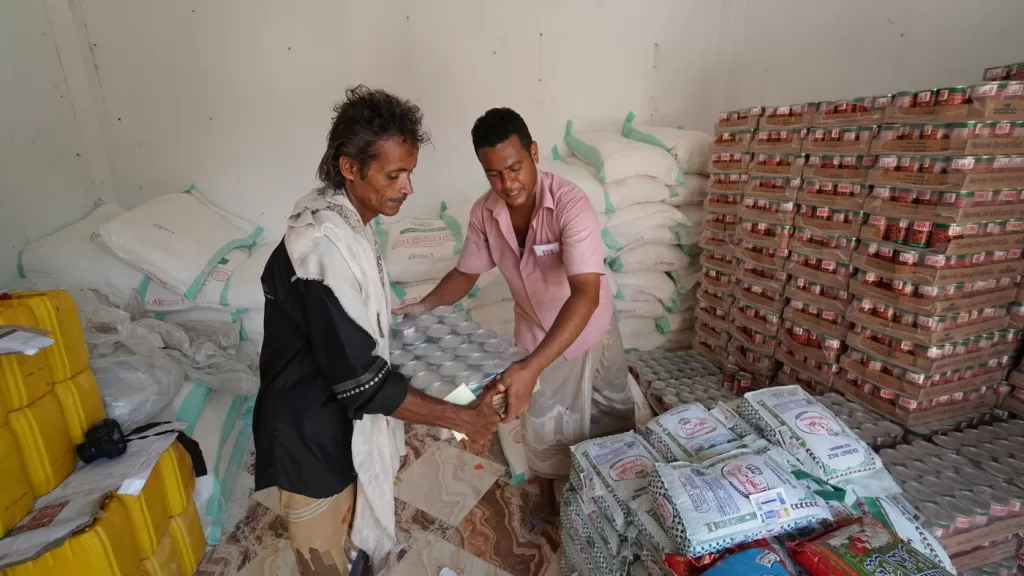
Salem, 47, collects a food parcel from a DEC-funded distribution point in Lahj, Yemen. Ammar Bamatraf/DEC.
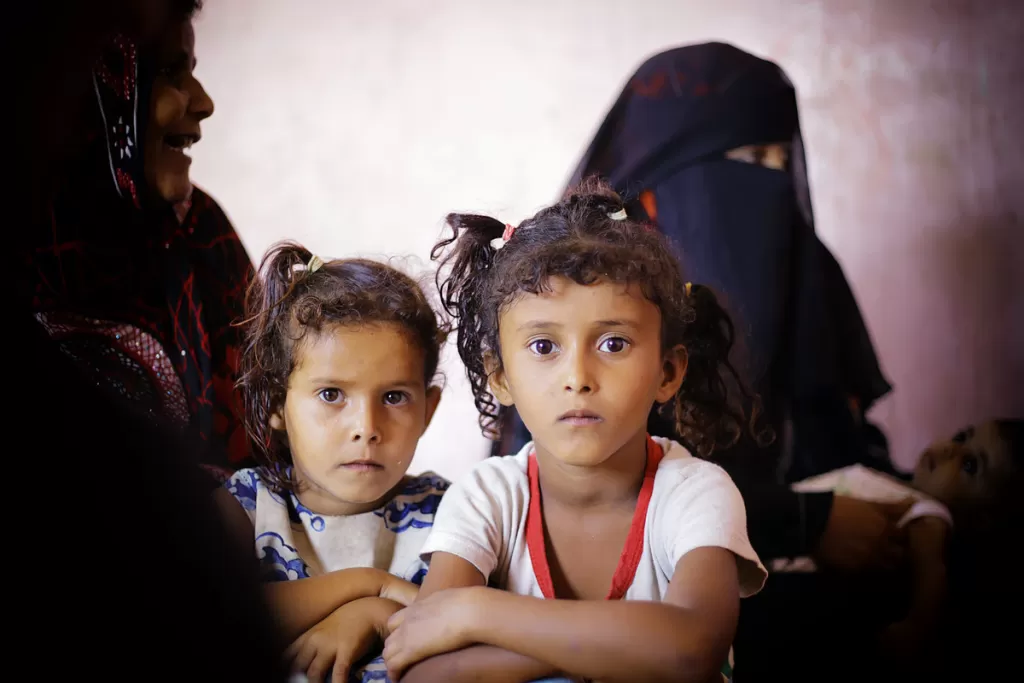
Aarya, 7, right, was found to be malnourished at a mobile clinic. Her family now receives food from a DEC-funded project in Lahj. Ammar Bamatraf/DEC.

Rasha, 35, benefited from a cash-for-work scheme to help build a water supply to her village in Lahj. Ammar Bamatraf/DEC.

